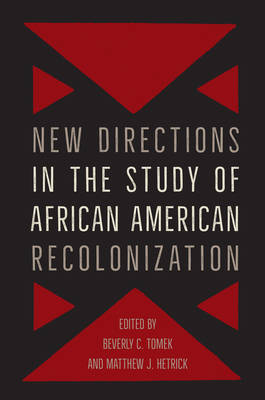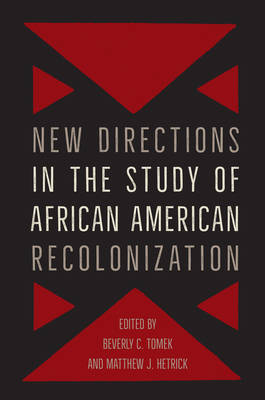
- Afhalen na 1 uur in een winkel met voorraad
- Gratis thuislevering in België
- Ruim aanbod met 7 miljoen producten
- Afhalen na 1 uur in een winkel met voorraad
- Gratis thuislevering in België
- Ruim aanbod met 7 miljoen producten
New Directions in the Study of African American Recolonization
Omschrijving
Examining the nineteenth-century movement to resettle Black Americans in Africa
This volume closely examines the movement to resettle Black Americans in Africa, an effort led by the American Colonization Society during the nineteenth century. Over a century later, the subject remains vigorously debated: while some believe recolonization was inspired by antislavery principles, others view it as a proslavery reaction against the presence of free Blacks in society.
Moving beyond this simple duality, the contributors to this volume link the movement to other historical developments of the time, revealing a complex web of different schemes, ideologies, alliances, and motives behind the relocation of African Americans to Liberia and other parts of Africa. Considering the perspectives of both Black and white Americans, as well as indigenous Africans, these essays address the many religious, political, and social aspects that influenced the recolonization project. Within nuanced nineteenth-century contexts, the contributors explain what colonization, emigration, immigration, abolition, and emancipation meant to the many different factions that supported or opposed recolonization.
Contributors: Eric Burin Andrew Diemer David F. Ericson Bronwen Everill Nicholas Guyatt Debra Newman Ham Matthew J. Hetrick Gale Kenny Phillip W. Magness Brandon Mills Robert Murray Sebastian N. Page Daniel Preston Beverly Tomek Andrew N. Wegmann Ben Wright Nicholas P. Wood
A volume in the series Southern Dissent, edited by Stanley Harrold and Randall M. Miller
Publication of the paperback edition made possible by a Sustaining the Humanities through the American Rescue Plan grant from the National Endowment for the Humanities.
Specificaties
Betrokkenen
- Uitgeverij:
Inhoud
- Aantal bladzijden:
- 368
- Taal:
- Engels
- Reeks:
Eigenschappen
- Productcode (EAN):
- 9780813054247
- Verschijningsdatum:
- 25/07/2017
- Uitvoering:
- Hardcover
- Formaat:
- Genaaid
- Afmetingen:
- 156 mm x 234 mm
- Gewicht:
- 743 g

Alleen bij Standaard Boekhandel
Beoordelingen
We publiceren alleen reviews die voldoen aan de voorwaarden voor reviews. Bekijk onze voorwaarden voor reviews.











